Please activate JavaScript in your browser to use all interface options.
Rosneft implements large-scale projects to study and preserve biodiversity in Russian regions
22 May 2024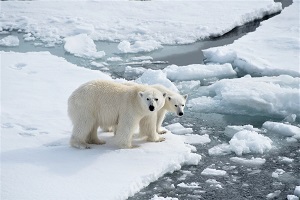
22 May is the International Day for Biological Diversity, which aims to draw attention to the problem of the extinction of various species of flora and fauna. Rosneft and its subsidiaries carry out many projects to study and preserve rare and red-listed species of flora and fauna.
Preservation of the environment for future generations is an integral part of the corporate culture and one of the key business principles of Rosneft. The Company is a member of the UN Global Compact and annually reaffirms its commitment to the organisation’s 17 Sustainable Development Goals, including Goals ‘Life Below Water’ and ‘Life On Land’. Rosneft invests significant funds in environment-oriented activities, implements large-scale environmental programs and is a leader in minimizing environmental impact and improving the ecological efficiency of production.
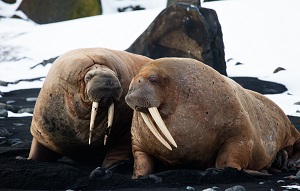 The Company has organized and conducted more than fifty expeditions, including focused environmental expeditions, as part of its extensive scientific research in the Arctic. For more than 12 years, the Company has collected a unique set of data on the region, its climate, nature and wildlife, which allows scientists to draw well-founded conclusions about the state of northern ecosystems and develop measures to conserve them. Specialists from leading Russian scientific organisations take part in the researches organized by the Company. The work is carried out with modern high-tech equipment: laboratory aircraft, ice-class ships, thermal imaging cameras, geo-transmitters, artificial intelligence software and others.
The Company has organized and conducted more than fifty expeditions, including focused environmental expeditions, as part of its extensive scientific research in the Arctic. For more than 12 years, the Company has collected a unique set of data on the region, its climate, nature and wildlife, which allows scientists to draw well-founded conclusions about the state of northern ecosystems and develop measures to conserve them. Specialists from leading Russian scientific organisations take part in the researches organized by the Company. The work is carried out with modern high-tech equipment: laboratory aircraft, ice-class ships, thermal imaging cameras, geo-transmitters, artificial intelligence software and others.
In 2023, Rosneft expanded its program to study and conserve bioindicator species of the Arctic region. In 2024 – 2027, the research will take place in the north of Krasnoyarsk Krai. During the expeditions, biologists will conduct the first-ever aerial survey of polar bears in the Kara Sea, monitor wild reindeer and fish populations at the mouth of the Yenisey River, as well as check nesting sites for rare bird species. Scientists will map the ecological sensitivity of the shores of Yenisey Bay and the adjacent waters of the Kara Sea.
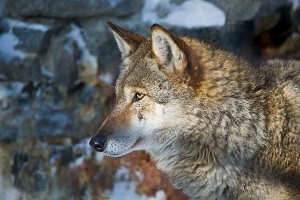 Rosneft’s subsidiaries operating in the northern regions also continue to implement grant projects to study and preserve bioindicator species of local ecosystems. With the support of Vostsibneftegaz in 2023, an assessment of the wolf population in Evenkia was carried out and recommendations on regulating the number of animals to minimize damage to households were made. The biologists also studied the impact of the predator on deer and elk populations, mapped the animals’ habitats and analyzed the mechanisms of population self-regulation.
Rosneft’s subsidiaries operating in the northern regions also continue to implement grant projects to study and preserve bioindicator species of local ecosystems. With the support of Vostsibneftegaz in 2023, an assessment of the wolf population in Evenkia was carried out and recommendations on regulating the number of animals to minimize damage to households were made. The biologists also studied the impact of the predator on deer and elk populations, mapped the animals’ habitats and analyzed the mechanisms of population self-regulation.
As part of another Vostsibneftegaz’ grant project, researchers identified habitats and counted the number of red deer using camera traps, tracks and by following the animals during field surveys. 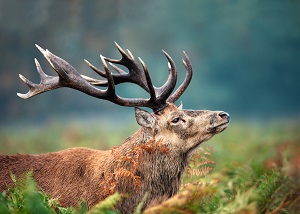 Deer habitat is expanding northwards for a number of reasons: availability and accessibility of forage, changing climatic conditions, snow cover and terrain. The research material will help preserve a new species of reindeer for Evenkia.
Deer habitat is expanding northwards for a number of reasons: availability and accessibility of forage, changing climatic conditions, snow cover and terrain. The research material will help preserve a new species of reindeer for Evenkia.
RN-Vankor held a grant competition to support scientific research of applied significance for the Taymyrsky Dolgano-Nenetsky District of Krasnoyarsk Krai and its indigenous population. According to the results of the competition, the enterprise supported two projects. Under the first one, scientists from Krasnoyarsk State Agrarian University assessed the state of aquatic biological resources in the Yenisey Bay of the Kara Sea. The second project aims to analyze the abundance and distribution of birds in the Western Taymyr and to identify key habitats of rare bird species listed in the Red Books of Russia and Krasnoyarsk Krai. The study resulted in recommendations for the protection of geese and the creation of resting areas during important periods in the birds’ life cycle.
As part of the Komsomolsk Refinery’s grant program, ornithologists of the Zapovednoye Priamurye Nature Reserve will implement a new stage of the project to study and conserve the population of the red-listed Steller’s sea eagle in 2024. On the threshold of the nesting season scientists of the Reserve together with ecologists of the enterprise installed 14 photo-audio traps. Monitoring of Steller’s sea eagles will allow to study in detail the population status of one of the largest birds of the world, which is found only in the Far East. The data obtained will form the basis for further research and development of environment-oriented measures.
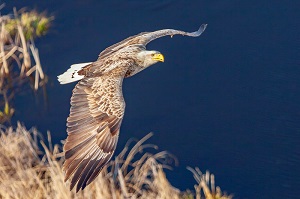 Rosneft’s Samara group of subsidiaries (Samaraneftegaz, Novokuibyshevsk Refinery, Kuibyshev Oil Refinery, Syzran Refinery, Novokuibyshevsk Petrochemical Company, Novokuibyshevsk Oils and Additives Plant) is implementing a grant project to study nesting sites of the white-tailed eagle. This year the Samarskaya Luka National Park, with the help of volunteers, will organize a monitoring of the population of these birds. Nesting areas and the exact location of nests, as well as the main demographic indicators are identified. Based on the data collected, the scientists will develop proposals for further conservation measures, including optimization of tourist flows in Samarskaya Luka. Such measures will make the national park a favourable nesting site for the white-tailed eagle and help to maintain the population at the level of the entire Middle Volga region.
Rosneft’s Samara group of subsidiaries (Samaraneftegaz, Novokuibyshevsk Refinery, Kuibyshev Oil Refinery, Syzran Refinery, Novokuibyshevsk Petrochemical Company, Novokuibyshevsk Oils and Additives Plant) is implementing a grant project to study nesting sites of the white-tailed eagle. This year the Samarskaya Luka National Park, with the help of volunteers, will organize a monitoring of the population of these birds. Nesting areas and the exact location of nests, as well as the main demographic indicators are identified. Based on the data collected, the scientists will develop proposals for further conservation measures, including optimization of tourist flows in Samarskaya Luka. Such measures will make the national park a favourable nesting site for the white-tailed eagle and help to maintain the population at the level of the entire Middle Volga region.
Rosneft
Information and Advertising Department
May 22, 2024

-315xx70.png)

